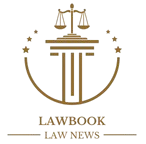Lawyer for Hunter Biden, Musk leaves Latham to launch a new law firm
(Reuters) – A former federal prosecutor whose clients have included billionaires Mark Cuban and Elon Musk, and who is currently representing President Joe Biden’s son Hunter in a US tax investigation, has left international law firm Latham & Watkins for a smaller litigation-focused firm .
Christopher Clark has joined forces with New York-based law firm Smith Villazor to form Clark Smith Villazor, they said on Thursday. The move reunites Clark with Patrick Smith, his former mentor from the US Attorney’s Office in Manhattan.
“We’re an incredibly dangerous and frightening team for people to face off against, and that excites me,” Clark said.
Clark said he opted to leave the partnership at Latham, one of the largest and highest-grossing US law firms, to avoid conflicts that hampered his ability to pursue cases on behalf of his hedge fund clients and others.
“We don’t have that problem at Clark Smith Villazor,” he added.
Clark said he would continue to lead a team of Latham lawyers that is representing Hunter Biden, who in December 2020 said his tax affairs were being questioned by the US Attorney’s Office in Delaware. A Latham spokesperson did not immediately respond to a request for comment.
Biden said in a statement then that he handled his affairs “legally and appropriately.” Clark said the US investigation is ongoing.
Smith Villazor was initially founded in 2016 by Smith and Rodney Villazor, both former partners at DLA Piper, another international law firm.
Clark said the vast majority of his clients are coming with him to his new firm, including the hedge fund Appaloosa Management and its founder, David Tepper.
Clark was among the attorneys hired by Cuban, the owner of the Dallas Mavericks basketball team, after he was accused by the US Securities and Exchange Commission of trading on non-public information when he sold 600,000 shares in an internet search company and avoided a $750,000 loss. A Texas jury cleared Cuban of any wrongdoing in October 2013.
Musk hired Clark after the SEC initially charged him with securities fraud after he tweeted in 2018 that he was taking electric car maker Tesla Inc private.
Musk and the SEC settled, with Musk paying a $20 million fine and stepping aside as the chairman of Tesla for three years. Clark said he is not currently representing Musk.
Our Standards: The Thomson Reuters Trust Principles.
